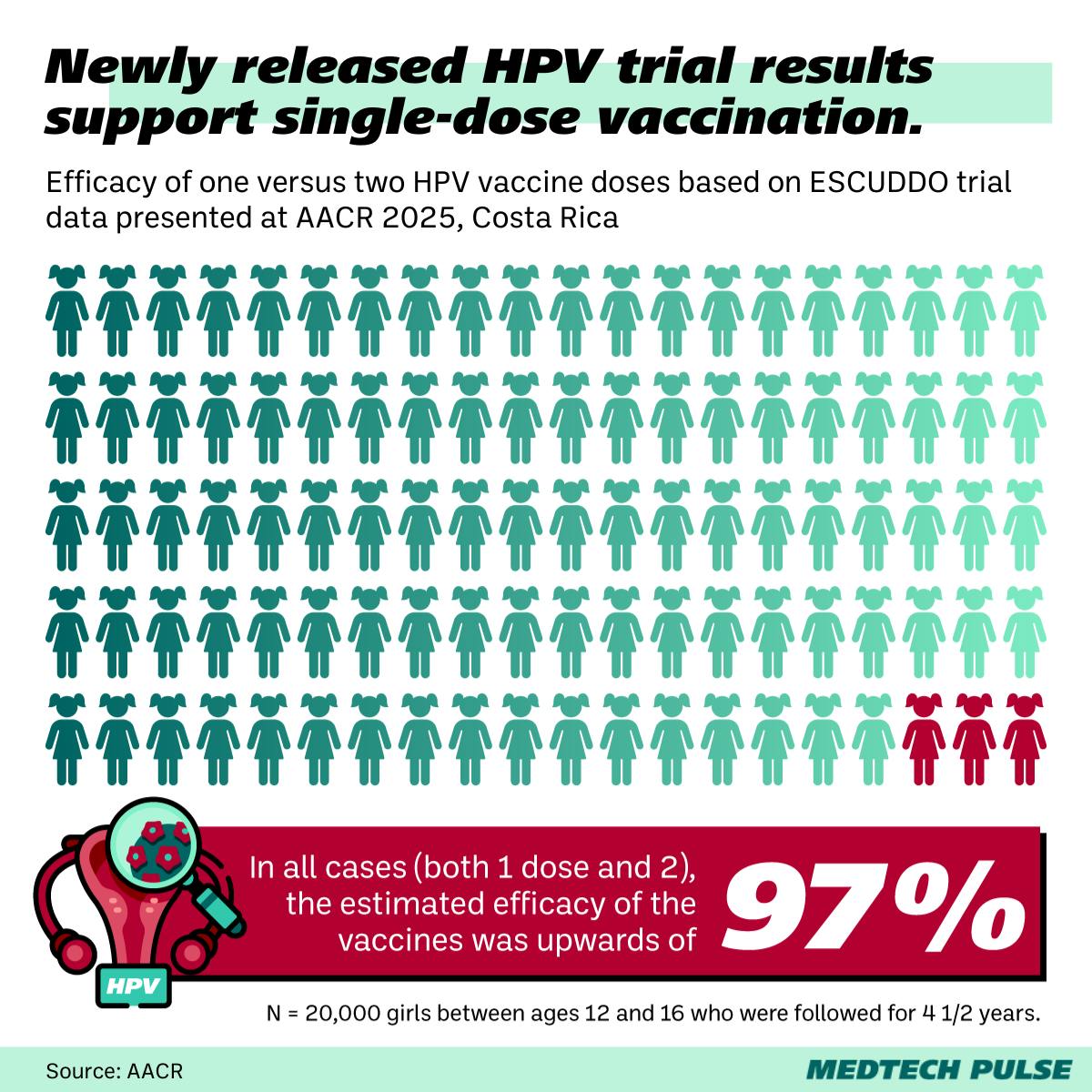A breakthrough in HPV vaccine efficacy
One of our best tools against cancer is the human papillomavirus (HPV) vaccine.
Generally offered to adolescents in a two-dose course, the vaccine has been found to be extremely effective at preventing HPV-associated cancers, especially cervical cancer.
Now, we’ve learned that it might be even easier to offer patients this valuable protection against HPV infection.
The story: New results from a National Cancer Institute (NCI) clinical study of the HPV vaccine suggest that one dose of the vaccine is just as effective at preventing the cancer-causing viral infection as the current two-dose gold standard.

Cancer-stopping vaccines: Former NCI director Ned Sharpless put it frankly: “I think this is the most important cancer prevention trial going on in the world. We have a long history of failure in cancer prevention.”
- Worldwide, 350,000 women die from cervical cancer each year. But HPV vaccines have already had an enormous effect on lessening this cancer’s impact.
- In the U.S., use of the vaccines has decreased the incidence of precancerous cervical lesions by 80%.
- Last year, Scotland announced that, of girls born in the country between 1988 and 1996 and vaccinated on time, none had been diagnosed with cervical cancer.
- HPV also causes anal, penile, and certain head-and-neck cancers, which is why HPV vaccines are also recommended to boys.
One can be better than two: If potential patients can gain full-power protection with just one dose, it will be easier and more cost-effective to get even more young people around the world across that “fully vaccinated” threshold.
- In less developed countries, the HPV vaccine can have the greatest impact, especially when regular cervical cancer and pre-cancer screening is less common. However, the vaccines are costly, so needing to offer just one to reap full benefits can make dissemination much more manageable.
In the U.S., where both the vaccine and access to annual pap smears are more easily available, public health officials have still been concerned by full course vaccination rates. In 2019, just over half of eligible adolescents had received both HPV shots. Now, this may not be such a bad thing.